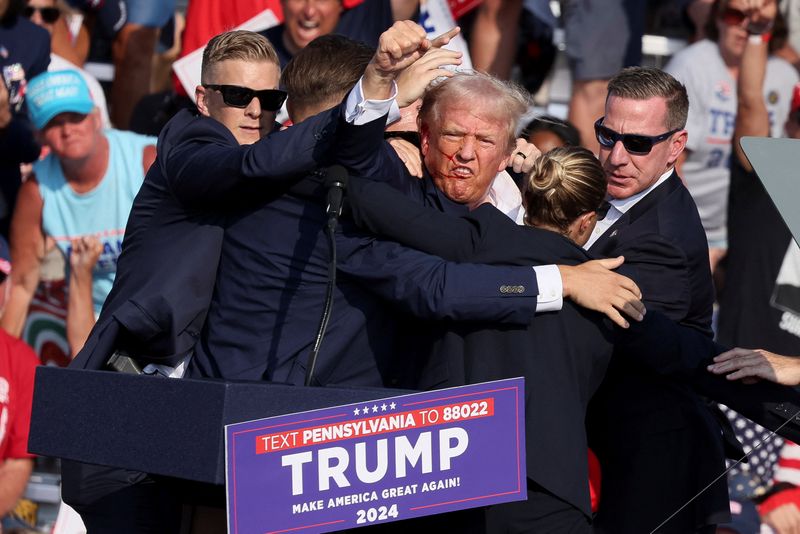The recent independent review into the U.S. Secret Service’s handling of the first assassination attempt on Donald Trump highlights significant deficiencies within the agency, labeling it as “bureaucratic and complacent.” This review came after Trump narrowly escaped a shooting incident on July 13 in Butler, Pennsylvania, where a bullet grazed his ear. The incident raised serious questions regarding the security protocols and effectiveness of the Secret Service, prompting the Biden administration to launch an investigation. The review concluded that without urgent reforms, the risk of another incident similar to Butler would remain high, as vulnerabilities in the agency’s operations could lead to catastrophic outcomes in the future.
According to the panel, the Secret Service demonstrated systemic flaws, characterized by a lack of accountability among experienced personnel, disjointed security planning, and obscured roles concerning command at events. These dysfunctions within the agency fed into the July 13 incident and indicated a larger cultural issue that requires immediate attention. The review further emphasized that the agency’s response to increased threats has not scaled accordingly, despite advancements in technology and evolving risk factors associated with high-profile figures like Trump. Without substantial changes, the likelihood of another attempt on Trump—or potentially any future candidate—remains a pressing concern.
The panel put forward several recommendations aimed at rectifying these systemic issues. Key proposals include developing overhead surveillance systems for outdoor candidate events, ensuring comprehensive situational reports aligned with candidate arrivals, and enhancing coordination between the Secret Service and local law enforcement agencies. The recommendations place a specific emphasis on fostering clear lines of communication and enhancing situational awareness at events where presidential candidates are present. The review has outlined a timeline for implementation, with many changes expected to be executed by March 2025, and a follow-up evaluation suggested for September of the same year.
The scrutiny on the Secret Service intensified following the Butler incident, resulting in widespread public outcry and ultimately the resignation of the agency’s director. An internal probe conducted by the Secret Service itself revealed significant communication failures and a lack of vigilance leading up to the shooting. In the aftermath, the agency recognized the need for additional protective measures, including incorporating bulletproof glass for Trump’s outdoor rallies. Such changes underline the urgency of addressing security shortcomings before the presidential election—an event made even more crucial given the nail-biting race that is shaping up as polling shows a highly competitive landscape.
In the context of heightened security challenges, the Secret Service has asserted that it has implemented numerous enhancements to its operational procedures. Leading up to a rally in Butler two months after the incident, the agency stated that it had made “comprehensive changes and enhancements” aimed at improving its communication systems and overall protective measures. These adjustments reflect a recognition of the urgent need to adapt to an increasingly hostile environment in which threats against public figures are growing more severe and complex.
Moreover, the review sheds light on additional concerning security breaches, such as an incident on September 15, where a gunman went undetected for nearly 12 hours at Trump’s golf course in West Palm Beach, Florida, with intentions to harm him. This alarming revelation further underscores the dire need for reform within the Secret Service. While measures have been taken to reinforce security following the Butler incident, experts suggest that ongoing scrutiny and evaluation are critical to ensure the agency evolves alongside the mounting complexities of protective services in an era marked by increased political volatility.

